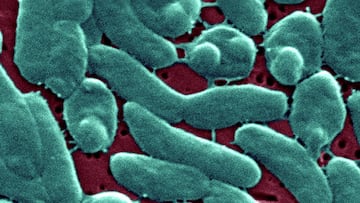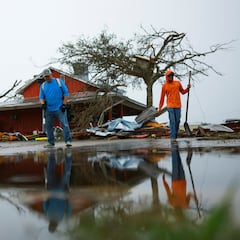What you should know about ‘flesh-eating’ bacteria if you live in Florida
The recent passage of hurricanes Milton and Helen in Florida has caused an increase in cases of a ‘flesh-eating’ bacteria in the Sunshine State.

Two dangerous hurricanes, Milton and Helene, have hit Florida in recent weeks. Among the consequences of their passage through the Sunshine State, multiple floods were recorded, which increased the risk of exposure to a dangerous flesh-eating bacteria, known as Vibrio vulnificus.
In early October, the Florida Department of Health urged residents and visitors to avoid flooding and exposure to Vibrio.“While floodwaters are present, there is an increased risk of Vibrio infections, such as Vibrio vulnificus, which can be life-threatening,” the agency said.
According to the latest update from the Florida Department of Health as of October 18, so far this year, in the ‘Sunshine State’ there have been 74 cases of infections and 13 deaths related to this bacteria.
After #HurricaneMilton, avoid floodwaters at all costs. These waters can be contaminated and conceal hidden dangers. Your safety is paramount—please take this seriously and protect yourself and your loved ones. pic.twitter.com/DT9yH7BnOV
— Florida Dept. of Health (@HealthyFla) October 11, 2024
You may be interested in: Hurricane season is not over: hot seas could spell trouble for the U.S.
What you need to know about the ‘flesh-eating’ bacteria if you live in Florida
Vibrio vulnificusis a bacterium that normally lives in warm seawater and is part of a group of vibrios that are called “halophiles” because they require salt.
People with open wounds, cuts, or scrapes may be exposed to Vibrio vulnificus through direct contact with flood water, sea water, or brackish water. Vibrio vulnificus can also cause illness in people who eat raw or undercooked oysters and shellfish. Vibrio vulnificus is NOT spread from person to person. Infections can be serious for people with weakened immune systems.
What are the symptoms of infection with the flesh-eating bacteria, Vibrio vulnificus?
Symptoms may include diarrhea, vomiting, abdominal pain, fever, chills, rapid or high heart rate, confusion or disorientation. Health officials recommend seeking medical attention immediately if you experience symptoms associated with Vibrio vulnificus, especially after exposure to flood waters.
Related stories
The Florida Department of Health and the Centers for Disease Control and Prevention (CDC) also recommend avoiding swimming or wading in flood water, standing water, saltwater, and brackish water, if possible.
Also, cover open cuts or wounds with waterproof bandages if they might come into contact with flood water, standing water, sea water, or brackish water. After any contact with flood water, you should wash your skin and open cuts or wounds thoroughly with clean water and soap.

